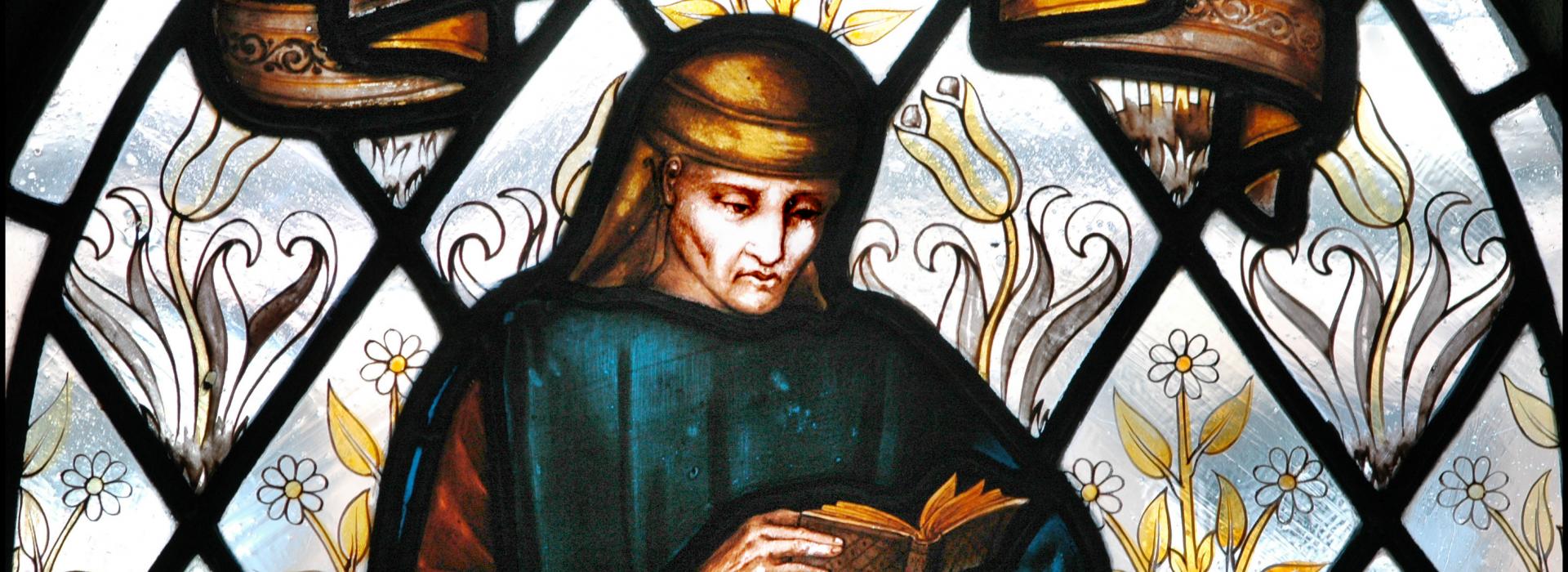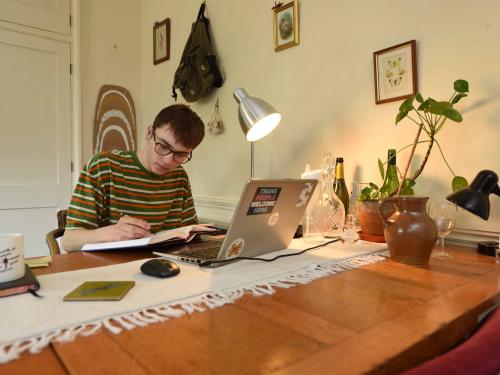Breadcrumb
Theology, Religion, and Philosophy of Religion
The Theology, Religion and Philosophy of Religion (TRPR) course at Cambridge explores some of the deepest questions about human existence and happiness, about our place in the universe and our relationship with the divine, and it will bring you into contact with the ancient wisdom of a number of different cultures.
The syllabus embraces many of the areas of enquiry which you might encounter in a Religious Studies or Philosophy A level, although it is by no means necessary to have taken the subjects at school in order to succeed in TRPR at Cambridge. Because of the diversity of the subject, anyone interested in history, languages, archaeology, philosophy, anthropology, art or comparative religion will find much of interest in this flexible and multi-disciplinary degree. The course is structured in such a way that those who wish to focus on a particular part of the discipline may do so, but that if you wish to engage with a range of subjects from different areas of study, that is possible as well.
TRPR at Peterhouse
TRPR has traditionally been a strong subject at Peterhouse, and there is a vibrant undergraduate and postgraduate community of theologians within the College at present. Peterhouse usually admits two undergraduate students in TRPR every year, and our theologians are strongly represented in all areas of College. Unlike the majority of colleges, which only have a single teaching Fellow in TRPR, Peterhouse is lucky enough to have three; and they specialise in very different areas.
James Carleton Paget teaches New Testament studies, and has a particular interest in the way in which Christianity emerged as a distinct religious movement from both Jewish and the wider pagan environment. Stephen Hampton teaches Christian theology and church history, and has a particular interest in the development of Protestant theology between the Reformation and the Enlightenment. Sophie Lunn-Rockliffe has particular interests in early Christianity and the history of ideas. James, Stephen and Sophie are glad to hear from anyone interested in studying TRPR at Peterhouse, and will be very happy to answer any questions you might have about the course or the College, or indeed to meet you. This can be done during a College Open Day or arranged individually by emailing either or both fellows.
Course Requirements
No subjects are considered essential to apply for TRPR, instead we are solely looking to offer places to students of high ability. Subjects such as English, Philosophy, Religious Studies, History or a modern or classical language are all advantageous.
The application process
Further information can be found on the University website.
We ask all our TRPR applicants to send us two examples of recent written work. Applicants will generally have two interviews with Fellows, Directors of Studies and an Admission Tutor. Thirty minutes prior to one of the interviews, you will be given a short piece of text to read and prepare to discuss.
Typical conditional offers
Our typical conditional offer for TRPR is A*AA at A level. IB offers are usually for a minimum of 41-42 points, to include 776 or 777 at Higher level in relevant subjects. Offers are designed to be realistic, taking into account individual circumstances, and to reflect potential and likely levels of achievement. Most of those who receive offers will attain the grades required.


